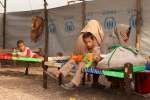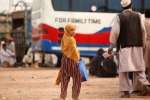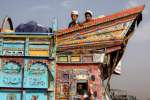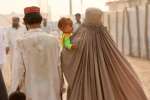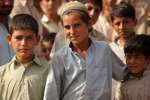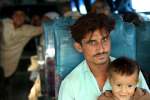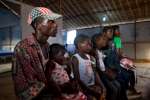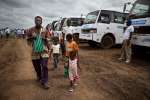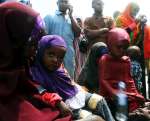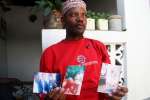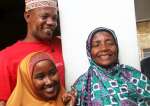- Text size
 |
|  |
|  |
| 
- Français
Final voluntary repatriation of DRC refugees from the Republic of Congo
Briefing Notes, 5 August 2014
This is a summary of what was said by UNHCR spokesperson Ariane Rummery – to whom quoted text may be attributed – at the press briefing, on 5 August 2014, at the Palais des Nations in Geneva.
Last week, a convoy carrying 81 DRC refugees living in the Republic of Congo crossed the border into the DRC, marking the end of five years in exile for the group and the final voluntary repatriation of Congolese refugees from the Republic of Congo.
This group are the last of the 119,000 DRC refugees to repatriate from the Republic of Congo with UNHCR's help since May 2012. They were among the 160,000 people who fled to neighbouring countries – 140,000 in Republic of Congo and 20,000 in the Central African Republic – when clashes erupted between the Munzaya and Enyele communities over traditional fishing rights in DRC's Equateur province in 2009. Since then, the refugees had been living in isolated areas along a 600-kilometre stretch of the Oubangui River, which separates Republic of Congo from the DRC.
The returning refugees left Betou in the Republic of Congo on 30 July and arrived in three reception centres run by UNHCR in Siforco, Izato and Dongo, in the north-west of DRC, where they were welcomed by Congolese authorities and local residents as well as UNHCR and its partners. Upon their arrival, UNHCR and the government provided returnees with identity documents, information on reintegration assistance, HIV/AIDS awareness training and medical help. UNHCR also provided returnees with a cash grant for travel to their final destinations and to help them settle.
Once home, returnees benefit from reintegration programs that provide health care, education, income generating activities, shelter kits, and construction of boreholes for water. There are also awareness campaigns to promote peaceful coexistence between communities, including a community radio station in the town of Dongo.
But these modest programmes may not be enough to ensure the stability of this now peaceful region. . Without the further involvement of local and national authorities, as well as the engagement of development actors UNHCR fears that this remote and underdeveloped region remains vulnerable to further conflict over scarce resources.
Between 5 May 2012 and 30 July 2014, UNHCR organized 416 voluntary repatriation convoys from the Republic of Congo to DRC's Equateur province. While 119,000 DRC refugees opted for voluntary repatriation, approximately 23,000 chose to stay in the Republic of Congo. The return of the 20,000 DRC refugees from CAR concluded in May this year. An additional 100,000 Congolese had also been displaced inside Equateur province, but most returned home when conditions improved in 2011.
More than 430,000 DRC citizens are still refugees in neighbouring countries, mainly in Uganda, Rwanda, Tanzania and Burundi.
DRC's Equateur province is also hosting more than 64,000 refugees from the Central African Republic. CAR refugees have been arriving in the DRC since December 2012, with new arrivals registered every week.
For more information on this topic, please contact:
- In Geneva, Ariane Rummery on mobile +41 79 200 7617
- In DRC, Céline Schmitt on mobile +243 81 700 94 84


